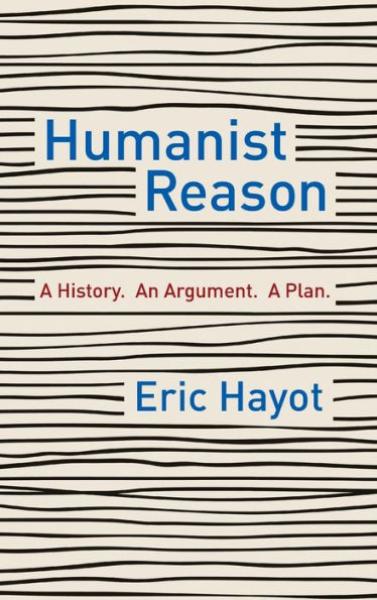Description
Hayot challenges scholars and students in the humanities to rethink and reconsider the work they do. Examining the origins of the humanist ethos in nineteenth-century Germany and tracing its philosophical roots back to Immanuel Kant, Hayot returns to the history of justifications for the humanities in order to build the groundwork for their future development. He develops the concept of "humanist reason" to understand the nature of humanist intellectual work and lays out a series of principles that undergird this core idea. Together, they constitute a provocative intellectual and practical program for a new way of thinking about the humanities, humanist thought, and their role in the university and beyond. Rather than appealing to familiar ethical or moral rationales for the importance of the humanities, Humanist Reason lays out a new vision that moves beyond traditional disciplines to demonstrate what the humanities can tell us about our world.
Eric Hayot argues that it is time to make a positive case for what the humanities are and what they can become. Humanist Reason lays out a new vision that moves beyond traditional disciplines to demonstrate what the humanities can tell us about our world.
Eric Hayot writes so beautifully, and with such breathless command of a central epistemological dilemma, that the book's excitement reaches well beyond the confines of German philosophy. Witty, thrilling, and even moving in the depth of its commitment, this short book is about nothing less than rethinking the university.--William Germano, coauthor of Syllabus: The Remarkable, Unremarkable Document That Changes Everything
In Humanist Reason, Eric Hayot brings a distinctive mix of chutzpah and erudition to bear on what have seemed to be intractable debates about the role of the humanities in public life, the organization of academic disciplines, and the future of higher education. With clarity of purpose, bravery, and admirable pragmatism, he calls not only for new thinking--but also for new action.--Rebecca L. Walkowitz, author of Born Translated: The Contemporary Novel in an Age of World Literature
The history of the humanities is a catalogue of grand moral claims and ethical exhortations. The humanities shape souls, form democratic citizens, reveal a common humanity. They are said to do whatever they are needed to do for any given group at any given time. With pithy prose, careful argument, and obvious excitement, Hayot casts these mythological accounts aside in order to draw our attention on the practice of humanist reason. By focusing on what humanist scholars do and not what they or their self-appointed spokespeople say they do, he reminds us that whatever consolations and succor the humanities might afford, humanities scholarship is a distinct form of reason that helps us know, understand, and care for this world and the people and objects that constitute it. This book is not another anxious apology or resentful jeremiad about the decline of the humanities. This is a confident and liberating gift that shows us how and why to practice humanist reason now.--Chad Wellmon, coauthor of Permanent Crisis: The Humanities in a Disenchanted Age
Product Details
- Columbia University Press Brand
- Feb 16, 2021 Pub Date:
- 0231197845 ISBN-10:
- 9780231197847 ISBN-13:
- 232 Pages
- 9 in * 6 in * 0.69 in Dimensions:
- 1 lb Weight:




